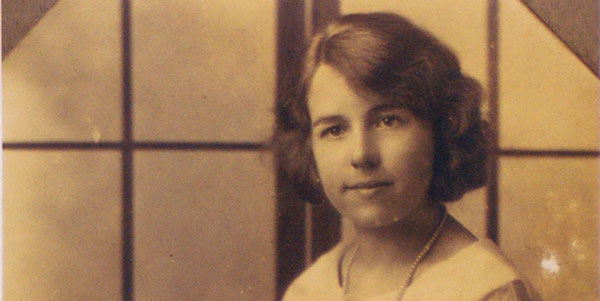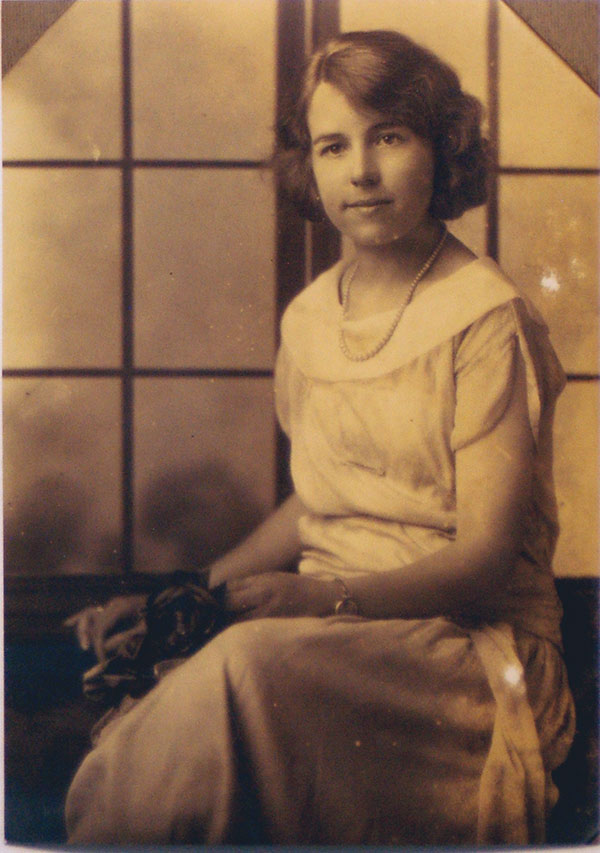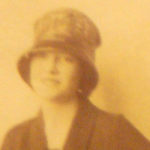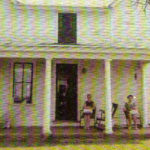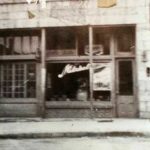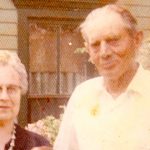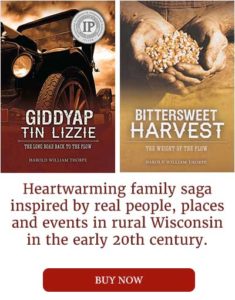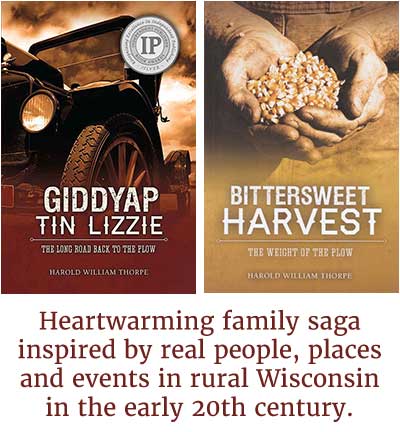Many of the characters in the O’Shaughnessy Chronicles are closely based on my own family members. In the novels my mother, Laura Fitzsimons, and her sister, Alice, are respectively Catherine and Ruby O’Shaughnessy.
“Ruby O’Shaughnessy. I Like that. Bold and vibrant.’ Mary scowled. Will pounded his chest. ‘A warrior. Let’s call her Ruby. With that voice, she’ll be another Boudica.’ ‘Boudica was Welsh, Will.’ ‘Boudica was Celtic. A fire burns in that girl. She’ll surely live up to that moniker.’” – Giddyap Tin Lizzie
“’I don’t plan to be a teacher. I couldn’t tolerate being around those little brats all day long.” Will wondered if his middle daughter would ever want children of her own. Ruby said she’d rather be a doctor, or a nurse if they wouldn’t let her in medical school.” – Bittersweet Harvest
“…they had built a chicken-wire arch from floor to ceiling around the large doorway that separated the living room and parlor, and every square inch of that chicken-wire was filled with yellow roses. Will knew this arch must have been Catherine’s idea. His Ruby would never have considered a thing so frivolous to be worth the effort. When Catherine had waxed eloquent about the splendor of a grand wedding, he’d heard Ruby say, ‘I’m going to elope.’” –Bittersweet Harvest
Of all the O’Shaughnessy Chronicles characters, Ruby is my favorite.
Mother and Alice were very different in real life. I wrote about them as I knew them. Ruby’s character – pragmatic, self assured, dominant and yes, a bit devilish, an instigator of pranks – is how I recall Aunt Alice.
My mother, in contrast, was the scholarly romantic. Mother was two years younger than Alice. Just like Catherine in the O’Shaughnessy Chronicles, Mother tended to defer to Alice’s judgment, and to rely on Alice to be her backbone.
Alice was born in Mineral Point, Wisconsin in 1904, the fourth of five children. Laura was the youngest.
Alice was a graduate of Avoca High School and of Mount Sinai School of Nursing in Milwaukee. She later worked at Dodgeville General Hospital. After moving west, she worked at two hospitals in Long Beach, California.
In both Wisconsin and California, Alice was quickly promoted to head nurse. That was just the kind of leader she was. Alice was married in 1934 and had one daughter. She died in 1986. After her death, the doctor who headed up one of the hospitals in Long Beach wrote a glowing letter about her to her daughter.
I, too, have lots of good memories of Aunt Alice. Twice when I was very young, we lived in California near her. She took me to Olvera Street, a Mexican marketplace in L.A. I remember the market’s bright, vibrant colors, the gourds and all the bright green and red and yellow vegetables. That still stands out in my mind. I also recall that at Christmastime, she took me to the home of a friend of hers, who had a big outdoor tree decorated with huge, bright lights. It was always very colorful. Like Alice.
As a child, I always felt secure when Alice was around. I never doubted her. In my eyes, she wore a Superman cape. Alice would plan outings — Knott’s Berry Farm, the beach, Olvera Street – and you just knew it was going to go off well. She always had everything set, ready to go. I miss that enthusiastic, can-do personality.
Later, when I was older, we moved back to Wisconsin. After that, Alice and her family visited us in Wisconsin every summer. Mother and Alice weren’t always physically close, but they always had a close relationship.
Mother revered her older sister. She rarely objected to anything Alice said. They were both smart, at the top of their high school classes, but I think Alice had a confidence that Mother lacked. I do think there were times, later in her life, that Mother looked back and realized that maybe she had allowed Alice to dominate her too much, that she had over relied on her.
You didn’t contradict Alice. She was always good natured, but she just didn’t bend. She went blithely on her way as if there couldn’t possibly be anyone who disagreed with her. Most people acquiesced. By middle school most people had dropped my childhood nickname, Skippy, and just called me Skip. Alice always called me Skippy. Even in my 50s, after I’d earned a doctorate, I was still Skippy to her. I didn’t object. She was the boss. Where did that strong personality come from? I think it was a mix of innate personality and life challenges, beginning in childhood.
Growing up, Alice and my mother had huge farm responsibilities. They milked cows every day before school, worked in the fields and in the house and drove a horse and buggy three miles to school and back. By the time they were teens, their three older siblings were grown. If their parents had to be away in those years, such as to attend a funeral, they were responsible for all of the milking.
Later in her life, I think Alice’s greatest challenge might have been the limitations placed on women. In a different era she probably would have been a medical doctor instead of a nurse. But she didn’t complain. She reached the top – head nurse — the pinnacle of what was then available to her.

